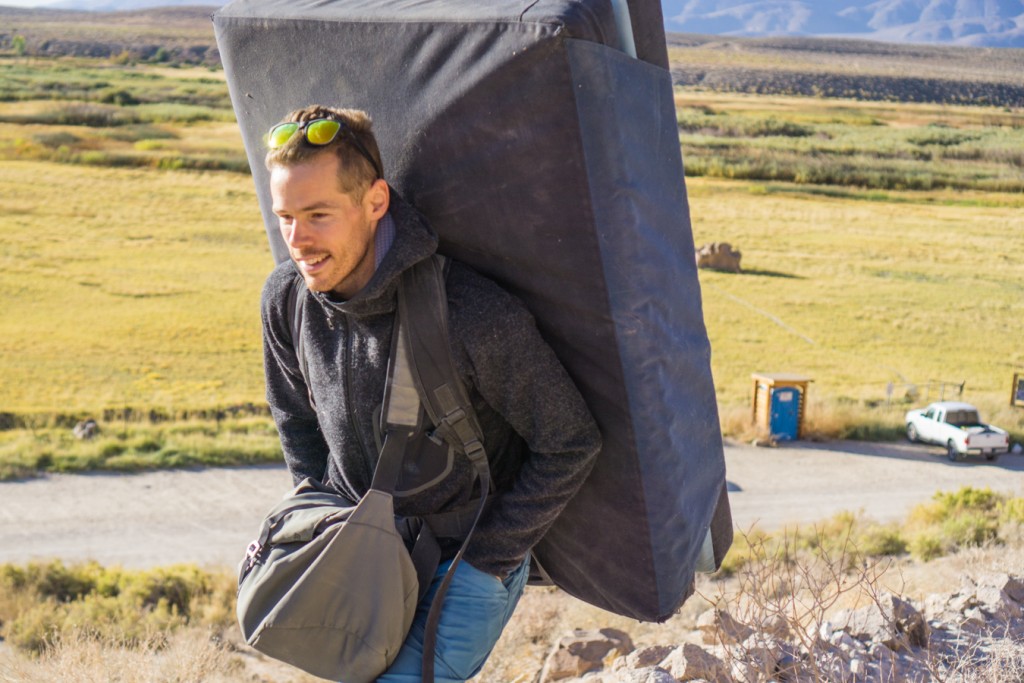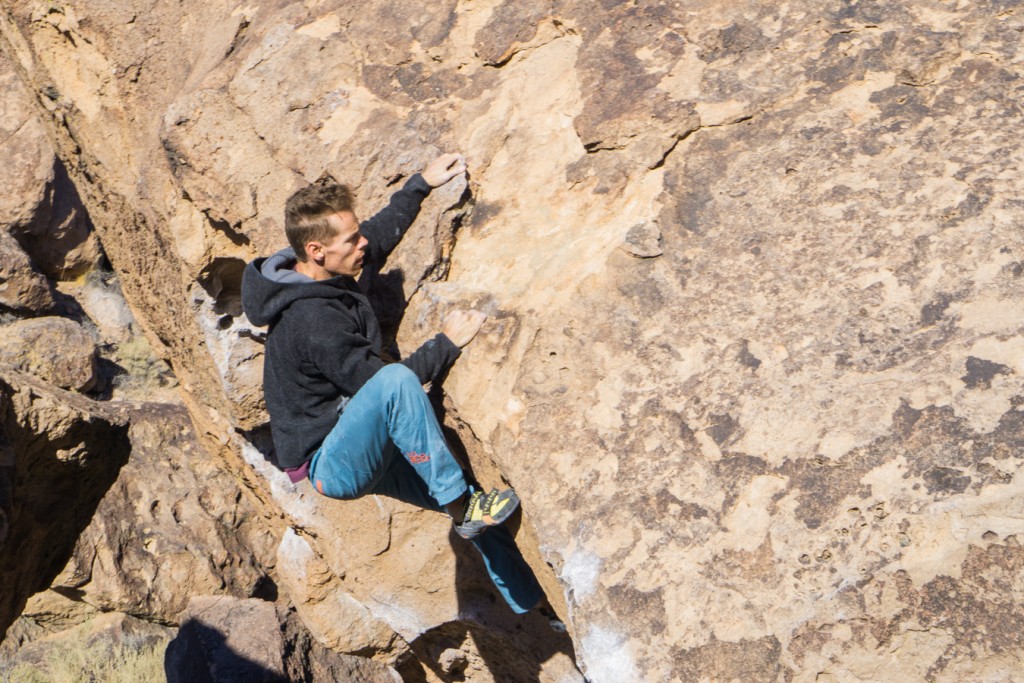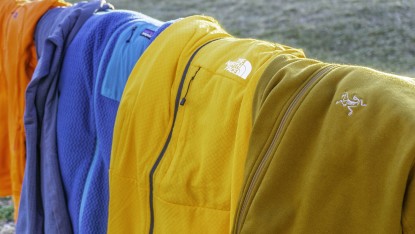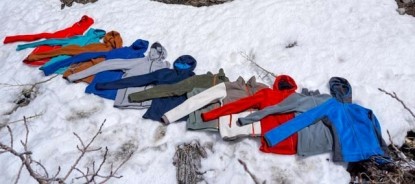Mountain Hardwear Hatcher Full Zip Hoody Review
Our Verdict
Our Analysis and Test Results
"Wait", you might say. “It's not fair to compare a wool jacket to a bunch of synthetic fleece!” And to a certain extent, you'd be correct in that assertion, but as manufacturers compete to design a layer that you'll want to wear all the time, we're seeing more “hybrid” style jackets in the fleece category, like the Arc'teryx Procline or the Outdoor Research Deviator, which both feature a combination of traditional fleece and synthetic insulation. So, there's our reasoning for letting this black sheep run amongst the rest of the fleece.
Performance Comparison
Warmth
The thick, tightly woven wool bonded to get fleece is an excellent insulator, and the Hatcher feels warmer than the similarly weighted Kuhl Interceptr and almost a warm as the heavier The North Face Denali 2, however, this jacket is sized large, and that leaves lots of uninsulated space if you're only wearing a t-shirt underneath. One of our testers that usually wears a small feels like an extra small would have felt warmer.
Comfort
Compared to soft fleece like the Patagonia R1 Hoody or even the high pile fleece of The North Face Campshire Hoody, the Hatcher feels stiff and boxy. It's not uncomfortable per se, but some of our testers routinely sleep in the R1, and they weren't inclined to crawl into a sleeping bag while wearing the Hatcher. The grid fleece lining does take away the most of the itch factor usually encountered with a wool coat.
Breathability
The Hatcher gets a middle-of-the-road score in the breathability metric. While it's more breathable than the thick The North Face Campshire Hoody, it's still not breathable enough to earn a place in our layering systems. For breathability, we look to the lighter weight models like the Patagonia R1 Hoody or the Arc'teryx Adahy.
Layering Ability
Again, the bulky fit works against the Hatcher, especially when it comes to layering. The sleeker fitting Outdoor Research Deviator slides under a wind shell or rain jacket more easily than the Hatcher. It's not that you won't fit under a rain jacket or hardshell while wearing the hatcher, you just won't experience the freedom of movement found with stretchier, form-fitting fleece in a layering system.
Weather Resistance
Here is where the Hatcher shines. Sheep's wool is an incredible defense against the elements. Sheep are out there, braving storms on Scottish hillsides, as they have for centuries. Their thick coats keep water out and dry quickly. Synthetic fleece is also quick drying, but the Hatcher never got that soaked, bogged down feeling we got from the thicker, all-synthetic The North Face Campshire Hoody during our water resistance testing.
Weight
Twenty-two and a half ounces put the Hatcher squarely in the heavyweight section of our review along with The North Face Denali 2, The North Face Campshire Hoody and the Patagonia Synchilla Snap-t. We consider this fleece too heavy for a backcountry layering system, as it's better suited for short hikes or hanging out around the crag.
Style
This jacket is at home around any mountain town. The large chest pocket is upfront and prominent and is a polarizing feature among our testers. Some feel it's cool and useful, while others don't like the look of it, but each to his own. The Hatcher is available in three dark, brooding colors: Black, Surplus Green, and Dark Zinc.
Value
$170 isn't bad for a jacket made from durable materials, but its weight and bulk detract from its versatility. A more versatile option would be the REI Co-op HyperAxis Hoody since it is a better layering piece and has a more athletic fit while remaining stylish enough for the front country.
Best Applications
Light activity in chilly fall weather is a fine time to wear the Hatcher. As we said, this jacket is too heavy for us to want on an expedition or a ski tour. If you're looking for an around town fleece with a little extra weather protection and classic wool stylings, the Hatcher will do the trick nicely.
Conclusion
Wool is a still a decent insulator compared to many of the new synthetic options out there today, and the Hatcher's 30% wool /56% polyester/ 14% nylon blend plays to the strengths of all three materials. This jacket is more suited for wearing as a stand-alone piece than as part of a layering system, though we'd be interested to see how a lighter weight version would perform during active pursuits.









